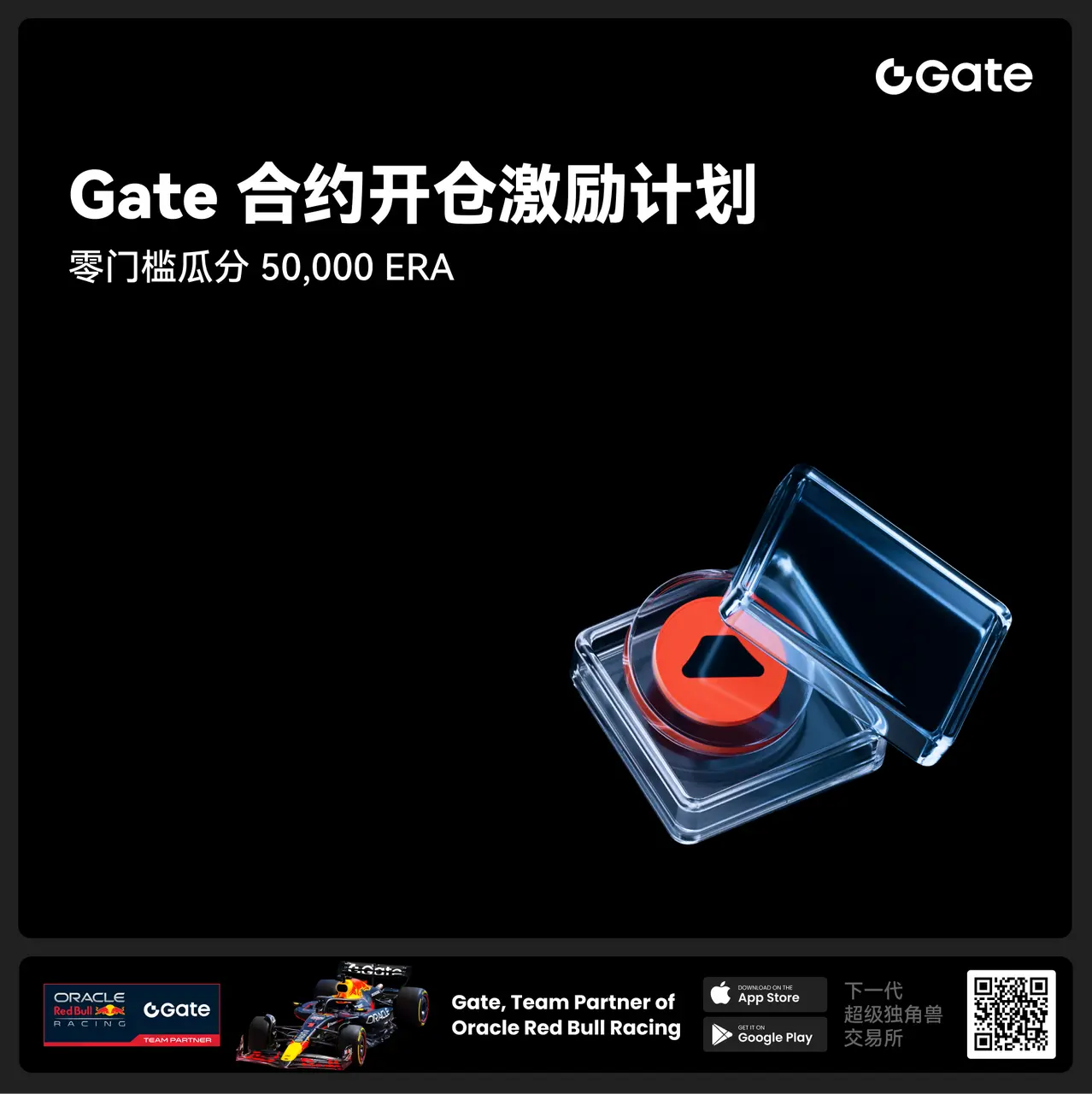- 话题1/3
4k 热度
24k 热度
7k 热度
5k 热度
172k 热度
- 置顶
- Gate 链上赚币:ETH 挖矿限时高收益!
✅ 年化收益近 5% + 额外奖励单人额度 1000 ETH
💎 最低 0.00000001 ETH 起投,无赎回期,随存随取!
立即上车,稳赚链上收益:https://www.gate.com/staking/ETH
- Gate 合约开仓激励计划火热上线!零门槛瓜分 50,000 ERA
开仓即有奖,交易越多奖励越多!
新用户享 20% 加成!
立即参与:https://www.gate.com/campaigns/1692?pid=X&ch=NGhnNGTf
活动详情:https://www.gate.com/announcements/article/46429
#Gate # #合约交易 # #ERA#
- 👀 家人们,最近你们都攒了多少 Alpha 积分啦?
空投领到了没?没抢到也别急,广场给你整点额外福利!
🎁 晒出你的 Alpha 收益,咱们就送你$200U代币盲盒奖励!
🥇 积分最高晒图用户 1 名 → $100 代币盲盒
✨ 积分榜前五优质分享者 5 名 → 各得 $20 代币盲盒
📍【怎么玩】
1️⃣ 带上话题 #晒出我的Alpha积分收益# 发广场贴
2️⃣ 晒 Alpha 积分截图 + 一句话总结:“我靠 Gate Alpha 赚了 ____,真的香!”
👉 还可以分享你的攒分技巧、兑换经验、积分玩法,越干货越容易中奖!
📆【活动时间】
8月4日 18:00 - 8月10日 24:00 (UTC+8)
- 🎉 #CandyDrop合约挑战# 正式开启!参与即可瓜分 6 BTC 豪华奖池!
📢 在 Gate 广场带话题发布你的合约体验
🎁 优质贴文用户瓜分$500 合约体验金券,20位名额等你上榜!
📅 活动时间:2025 年 8 月 1 日 15:00 - 8 月 15 日 19:00 (UTC+8)
👉 活动链接:https://www.gate.com/candy-drop/detail/BTC-98
敢合约,敢盈利
SEC’s Peirce defends transaction privacy as Tornado Cash verdict looms
US Securities and Exchange Commission (SEC) Commissioner Hester Peirce told an audience of blockchain researchers and practitioners on Monday that lawmakers and regulators need to protect people’s right to transact privately
Her words come as Roman Storm’s Tornado Cash trial heads toward a verdict
Peirce said in a speech at the Science of Blockchain Conference that privacy-protecting technologies and the right to self-custody crypto should be protected, along with developers of open-source privacy software, who shouldn’t have to answer for the actions of others using the software.
“We should take concrete steps to protect people’s ability not only to communicate privately, but to transfer value privately, as they could have done with physical coins in the days in which the Fourth Amendment was crafted,” she said.
“Although a centralized intermediary or even a DAO deploying a DeFi application could build in restrictions on its use, an immutable, open-source protocol is available for anyone’s use in perpetuity, so requiring that it comply with financial surveillance measures is fruitless.”
Peirce’s comments come amid jury deliberations in the Roman Storm trial, the co-founder of crypto mixing service Tornado Cash, which offers a way to mask the origin and destination of cryptocurrency coins from prying eyes.
In the 1990s, governments, for national security reasons, wanted to keep strong cryptography out of private hands, according to Peirce.
Peirce said it took court cases and pushback from cryptographers such as Phil Zimmermann — the developer of Pretty Good Privacy (PGP) encryption software — to turn the tide, leading to many technological advancements.
“The internet could not have succeeded without strong cryptography, so a determined set of cryptographers pushed back and convinced the government that cryptography in private hands was a net positive,” she said.
DeFi broker rule should stay dead
In the same speech, Peirce also said that regulators shouldn’t be asking businesses to keep a record of who they or their customers transact with, as was nearly enforced by the so-called decentralized finance (DeFi) broker rule.
Related: CFTC starts ‘crypto sprint’ with SEC following White House plans
“Doing so would deputize us to surveil our neighbors—a practice antithetical to a free society. Nor should we require an intermediary to step in the middle of peer-to-peer transactions,” she said.
Before US President Donald Trump killed it on April 10, the Biden administration-era DeFi broker rule would have required DeFi protocols to disclose gross proceeds from crypto sales, including information regarding taxpayers involved in the transactions, to the Internal Revenue Service
Crypto mixers on trial
Storm is standing trial in the Southern District of New York over allegations that criminal elements used the mixing service for money laundering and that Storm is responsible for facilitating their actions. If convicted, he could face up to 40 years in prison.
Storm’s defence team and the industry argued that Tornado Cash, like any tool, can be used by both normal citizens and bad actors and the software developers shouldn’t be held responsible for the actions of others.
In a similar case, the co-founders of Samourai Wallet are facing charges stemming from their involvement in the crypto mixing protocol. They opted to plead guilty on July 29 after initially trying to get the case dismissed
Magazine: Robinhood’s tokenized stocks have stirred up a legal hornet’s nest